Ferdinand Porsche at Daimler (Mercedes)-Benz
1926 Mercedes 24/100/140 PS on display in fahr(T)raum
Ferdinand Porsche left Austro Daimler in 1923 due to differences with the Supervisory Board. As of April 30, 1923, he succeeded Paul Daimler on the Board of Management and as Chief Designer at the Daimler-Motoren-Gesellschaft (DMG) in Stuttgart. At Daimler he was in charge of the further development of the two-litre Mercedes Kompressor car, so-named for their Roots-type mechanical superchargers (Roots blower). A novelty in the course of their advanced development was exhaust valves filled with mercury for better temperature dissipation.
Another victory at the Targa Florio
In 1924, DMG merged with its long-time competitor Benz & Cie. with Ferdinand Porsche as Chief Designer. In the same year, racing driver Christian Werner drove the Kompressor car to overall victory in the gruelling Targa Florio in Sicily, earning Ferdinand Porsche an honorary Doctor of Engineering title from the Stuttgart Technical University. Interestingly, the racing car for the Targa Florio was not painted in the usual German national colour (white), but in the red of the Italian racing cars – so that Italian spectators wouldn´t throw stones at the car.
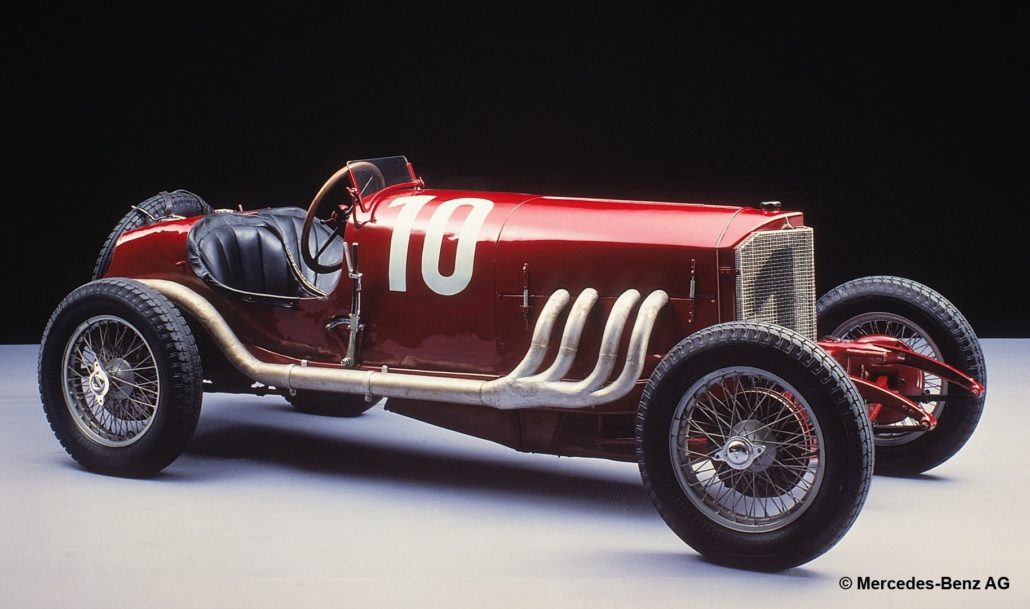
Mercedes-Targa-Florio-Rennwagen, 1924. © Daimler AG.
Mercedes Benz Type 630
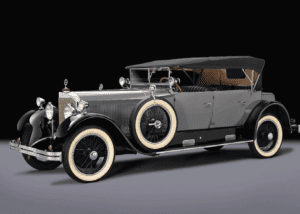
Mercedes 24/100/140, Bj. 1926, in fahr(T)raum.
In 1924, based on the Kompressorwagen, Porsche designed the Mercedes 24/100/140 . The first number indicated the “tax horsepower” based on the displacement while the second number stood for the effective motor power output. The third number was unique to the Kompressor cars. It designated the power output when the compressor was switched on. From 1926, the car became the Mercedes Benz Type 630. The Mercedes 24/100/140 PS was built from 1924 to 1929. A model of this type from 1926 can also be seen in the classic car exhibition at the Ferdinand Porsche Worlds of Experience fahr(T)raum in Mattsee near Salzburg.
Mercedes Type S, SS- and SSK
From 1926 – in addition to truck and aircraft motors – Porsche developed his famous Mercedes Type S, SS and SSK sports car models for the new Daimler-Benz company. They epitomised dynamic performance and racing success.
In 1929, Ferdinand Porsche left Daimler-Benz and returned to Austria as the Technical Director of Steyr-Werke AG. You can read about further highlights of Porsche´s technical universal genius here: Ferdinand Porsche time at Steyr – ingenious pit stop
Sources
Mercedes Benz Archiv, Ferdinand Porsche wird Nachfolger von Paul Daimler
Mercedes Benz Archiv, Porsche geht Hans Nibel bleibt
Porsche Holding, Ferdinand Porsche – Der Erfindergeist
Kleindenkmailer, Ferdinand Porsche
Wikipedia, Ferdinand Porsche
Wikipedia, Mercedes 24/100/140
Mercedes Benz Archiv, Mercedes 15/70/100 PS – Mercedes-Benz 24/110/160 PS Modell K, 1924 – 1930
Mercedes Benz Archiv, 2-L Targa Florio Rennwagen 1924
Heise, Der Trick mit der Farbe
Sn.at/wiki, Ferdinand Porsche
Pictures
Bilder 1-7, © Daimler AG
Bild 8, © fahr(T)raum Archiv
This might also interest you:

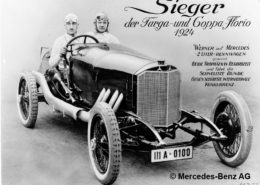
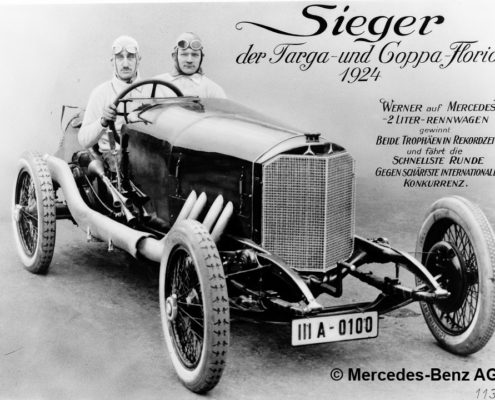
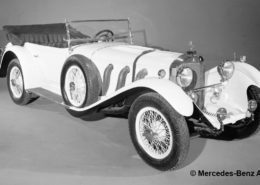
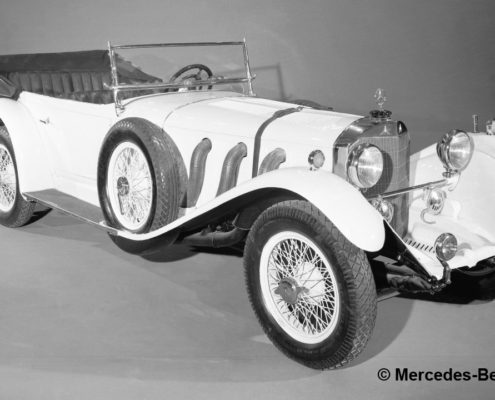





NEW at fahr(T)raum: Steyr Type 30 Cabriolet (1931)
/in Geschichte, News, Sonstige FahrzeugeFerdinand Porsche, who has gone down in history as a pioneer of automotive engineering, developed a car for the upper middle class for the Steyr-Werke in 1929: following his career as Technical Director at Austro Daimler (1906-1923). He very advantageously reengineered, as instructed by Steyr, the Steyr type XX and created a substantially new model […]
Now on exhibit at fahr(T)raum: the world´s only Austro Daimler ADV Boat Tail!
/in Geschichte, News, Sonstige FahrzeugeThe last design which Ferdinand Porsche engineered as technical director for Austro Daimler is now on display at fahr(T)raum Mattsee: the Austro Daimler ADV Boat Tail. It was built in Wiener Neustadt in 1923, but it received its unique chassis – the “Boat Tail” – in the 1950s in the USA. The ADV is a […]
New exhibit at fahr(T)raum – 1916 Austro Daimler 2-cylinder Feldbahn engine
/in Geschichte, Motoren, NewsField and industrial railways (Feldbahnen) have assisted the transport of agricultural, forestry and industrial raw materials and products since the 19th century. They offered high transport performance with simultaneous low energy consumption (low rolling resistance of the wheel-rail system). Their use is mainly associated with the processing industry, such as, e.g., chamotte or sugar factories […]